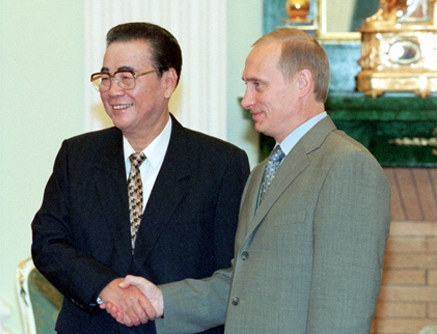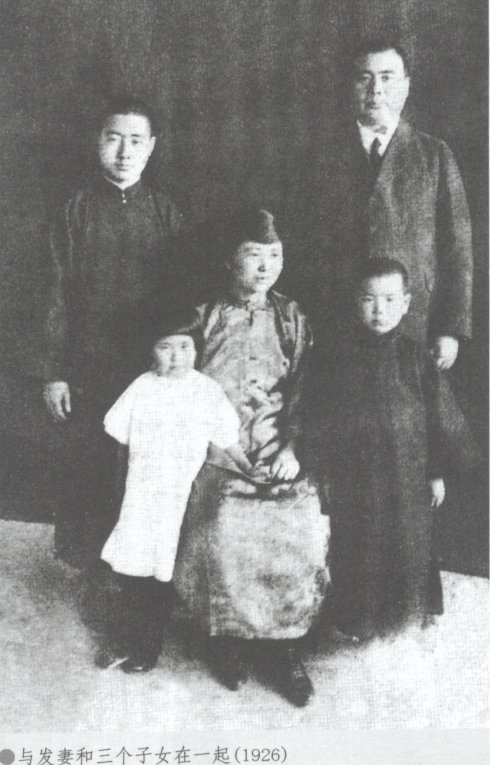|
T'ao Hsing-chih
Tao Xingzhi (; October 18, 1891 – July 25, 1946), was a renowned Chinese educator and reformer in the Republic of China mainland era. He studied at Teachers College, Columbia University, and returned to China to champion progressive education. His career in China as a liberal educator was not derivative of John Dewey, as some have alleged, but creative and adaptive. He returned to China at a time when the American influence was zesty and self-confident, and his very name at that time (''zhixing'') meant "knowledge-action," reflecting the catch-phrase of the Neo-Confucian philosopher Wang Yangming which implied that once knowledge (''zhi'') had been obtained, then action (''xing'') would be easy. Biography Tao was born on October 18, 1891, in She County, Anhui. Returning from study in the United States at University of Illinois and Columbia University, in 1917, he joined Nanking Higher Normal School and then National Southeastern University (later renamed National Central ... [...More Info...] [...Related Items...] OR: [Wikipedia] [Google] [Baidu] |
Tao (surname)
Tao is the pinyin romanization of Chinese, romanization of the Chinese surname (''Táo''). It listed 31st in the Song Dynasty, Song-era ''Hundred Family Surnames'' poem. Tao () is not to be confused with the Vietnamese surname , derived from the Chinese surname Cao (Chinese surname), Cao () or the Japanese surname , notably the surname of ski jumper and baseball player . Origin Various Tao origins: *Qi (surname) (祁) *Public Officer of Zhou Dynasty *Miao people *Tujia people, Blang people, Yao people, Yi people, Dai people of Minority Group *Mongols, Mongolian *Tuoheluo, Tuqin, Tuokuer family of Liaoning *Xibe people Romanization * Wade-Giles: T'ao, Tao (apostrophe is commonly omitted) * Cantonese: To, Tou (surname), Tou and Tow (surname), Tow * Cantonese, Minnan: Tô * Teochew Min, Teochew: Tau, Tow (surname), Tow * Gan Chinese, Gan: Thau (surname), Tháu Other languages * Vietnamese: Dao (surname), Đào () * Korean: Do () * Japanese: Distribution Tao was the list of ... [...More Info...] [...Related Items...] OR: [Wikipedia] [Google] [Baidu] |
Memorial Of Tao Xingzhi
The Tao Xingzhi Memorial () is a memorial built in memory of the Chinese scholar Tao Xingzhi, located in Qixia District, Nanjing, Jiangsu Jiangsu is a coastal Provinces of the People's Republic of China, province in East China. It is one of the leading provinces in finance, education, technology, and tourism, with its capital in Nanjing. Jiangsu is the List of Chinese administra ... province, China. Overview The memorial is a tomb and museum dedicated to the life of Tao Xingzhi.南京晓庄学院学校 - ChinaRen校友录 Class.chinaren.com. Retrieved on 2014-05-16. The memorial is in area. The roof of the building, shaped like a thatched cottage, is made from cement. Within the building is a bronze statue of Tao and two exhibition rooms, with 120 pictures, ... [...More Info...] [...Related Items...] OR: [Wikipedia] [Google] [Baidu] |
Wang Dazhi
Wang Dazhi (; April 21, 1903 – March 27, 1980) was a Chinese educator. Biography Wang Dazhi was born in Yi County, Anhui in 1903. He attended the Nanjing Xiaozhuang Normal College, which was founded by Tao Xingzhi. After graduating in 1928, Tao appointed him to be the principal of the Xin'an Primary School, a rural school in Huai'an, Jiangsu province that Tao had established, from 1928 to 1935. In 1935, Wang Dazhi established the ''Xin'an Lüxing Tuan'' or Xin'an Traveling Group () to test Tao Xingzhi's education philosophy of treating society as one's school and to advocate national salvation in the face of Japanese aggression. On October 10, 1935, Wang and 14 primary students left Huaian and began a 25,000 km journey that would take 17 years through 22 provinces and Hong Kong. Along the way, they held public rallies, showed film, held dramatic and dance performances, sang songs, wrote articles and created artworks to advocated national salvation and anti-Japanese ... [...More Info...] [...Related Items...] OR: [Wikipedia] [Google] [Baidu] |
People's Republic Of China
China, officially the People's Republic of China (PRC), is a country in East Asia. With population of China, a population exceeding 1.4 billion, it is the list of countries by population (United Nations), second-most populous country after India, representing 17.4% of the world population. China spans the equivalent of five time zones and Borders of China, borders fourteen countries by land across an area of nearly , making it the list of countries and dependencies by area, third-largest country by land area. The country is divided into 33 Province-level divisions of China, province-level divisions: 22 provinces of China, provinces, 5 autonomous regions of China, autonomous regions, 4 direct-administered municipalities of China, municipalities, and 2 semi-autonomous special administrative regions. Beijing is the country's capital, while Shanghai is List of cities in China by population, its most populous city by urban area and largest financial center. Considered one of six ... [...More Info...] [...Related Items...] OR: [Wikipedia] [Google] [Baidu] |
Zhou Enlai
Zhou Enlai ( zh, s=周恩来, p=Zhōu Ēnlái, w=Chou1 Ên1-lai2; 5 March 1898 – 8 January 1976) was a Chinese statesman, diplomat, and revolutionary who served as the first Premier of the People's Republic of China from September 1954 until Death of Zhou Enlai, his death in January 1976. Zhou served under Chairman Mao Zedong and aided the Chinese Communist Party, Communist Party in rising to power, later helping consolidate its control, form its Foreign policy of China, foreign policy, and develop the Economy of China, Chinese economy. As a diplomat, Zhou served as the Chinese Foreign Minister of the People's Republic of China, foreign minister from 1949 to 1958. Advocating peaceful coexistence with Western Bloc, the West after the Korean War, he participated in the 1954 Geneva Conference and the 1955 Bandung Conference and helped orchestrate 1972 Nixon visit to China, Richard Nixon's 1972 visit to China. He helped devise policies regarding disputes with the United States, ... [...More Info...] [...Related Items...] OR: [Wikipedia] [Google] [Baidu] |
Li Peng
Li Peng (; 20 October 1928 – 22 July 2019) was a Chinese politician who served as the 4th premier of China from 1987 to 1998, and as the chairman of the Standing Committee of the National People's Congress, China's top legislative body, from 1998 to 2003. For much of the 1990s Li was ranked second in the Chinese Communist Party (CCP) hierarchy behind then CCP General Secretary Jiang Zemin. He retained his seat on the CCP Politburo Standing Committee until his retirement in 2002. Li was the son of an early Communist revolutionary, Li Shuoxun, who was executed by the Kuomintang. After meeting Zhou Enlai in Sichuan, Li was raised by Zhou and his wife, Deng Yingchao. Li trained to be an engineer in the Soviet Union and worked at an important national power company after returning to China. He escaped the political turmoil of the 1950s, 1960s, and 1970s due to his political connections and his employment in the company. After Deng Xiaoping became China's leader in the late 1970 ... [...More Info...] [...Related Items...] OR: [Wikipedia] [Google] [Baidu] |
On New Democracy
''On New Democracy'' is a 1940 essay by Mao Zedong in which he established the concept of New Democracy during the Second Sino-Japanese War. History of text Mao wrote ''On New Democracy'' in early 1940 while the Yan'an Soviet was developing and expanding during the Second Sino-Japanese War. During this period, Mao was concerned about bureaucratization and sought to develop a culture of mass politics. In his view, mass democracy was crucial, but could be guaranteed only to the revolutionary classes. Mao later expanded on the principles discussed in ''On New Democracy'' in his April 1945 report ''On the Coalition Government'', delivered during the Seventh Congress of the Chinese Communist Party. These principles were then reflected in the Party's political views from 1949 to 1952, pursuant to which it was assumed that the initial new democracy would take ten years or more to transition to a socialist society. Later, the Soviet model became increasingly adopted by the Chinese Com ... [...More Info...] [...Related Items...] OR: [Wikipedia] [Google] [Baidu] |
Mao Zedong
Mao Zedong pronounced ; traditionally Romanization of Chinese, romanised as Mao Tse-tung. (26December 18939September 1976) was a Chinese politician, revolutionary, and political theorist who founded the People's Republic of China (PRC) in 1949 and led the country from Proclamation of the People's Republic of China, its establishment until Death and state funeral of Mao Zedong, his death in 1976. Mao served as Chairman of the Chinese Communist Party (CCP) from 1943 until his death, and as the party's ''de facto'' leader from 1935. His theories, which he advocated as a Chinese adaptation of Marxism–Leninism, are known as Maoism. Born to a peasant family in Shaoshan, Hunan, Mao studied in Changsha and was influenced by the 1911 Revolution and ideas of Chinese nationalism and anti-imperialism. He was introduced to Marxism while working as a librarian at Peking University, and later participated in the May Fourth Movement of 1919. In 1921, Mao became a founding member of the ... [...More Info...] [...Related Items...] OR: [Wikipedia] [Google] [Baidu] |
Zhang Zhizhong
Zhang Zhizhong or Chang Chih-chung (27 October 1890 – 10 April 1969) was a Chinese military commander and politician, general in the National Revolutionary Army of the Republic of China and later a pro-Communist politician in the People's Republic of China. Originally a supporter and close associate of Chiang Kai-shek, Zhang belonged to the left wing of the Kuomintang, advocating policies such as collaboration with the Communists against Japan and nationalization of foreign-owned businesses. In 1949 he defected from the Nationalists, becoming a follower of Mao Zedong, and went on to hold high office in the new Communist government, serving as Vice Chairman of the National Defense Council (1954–1969) and Vice Chairman of the National People's Congress (1965–1969).ZHANG ZHIZHONG (1890–1969), in ''Historical Dictionary of Modern China (1800–1949)'', by James Z. Gao, 2009, p.p. 437–438, The Scarecrow Press Life He was born in Chaohu, Anhui, and attended the Baoding ... [...More Info...] [...Related Items...] OR: [Wikipedia] [Google] [Baidu] |
Feng Yuxiang
Feng Yuxiang (; ; 6 November 1882 – 1 September 1948), courtesy name Huanzhang (焕章), was a Chinese warlord and later general in the National Revolutionary Army. He served as Vice Premier of the Republic of China from 1928 to 1930. At the start of the 1911 Revolution, Feng was an officer in the ranks of Yuan Shikai's Beiyang Army. He initially joined forces with the revolutionaries, but came to support Yuan's regime. In 1914, he converted to Christianity, earning him the nickname the "Christian General". He became a warlord in Northwest China, based in Shaanxi, and rose to a high rank within the Zhili clique, a powerful warlord faction. In 1924, during the Second Zhili-Fengtian war, Feng launched the Beijing Coup, which knocked the Zhili out of power, and re-organised his troops as the Guominjun. He brought Sun Yat-sen to Beijing for negotiations on re-unification, but this was not realized. In 1926, Feng was defeated by the Zhili and Fengtian cliques in the An ... [...More Info...] [...Related Items...] OR: [Wikipedia] [Google] [Baidu] |
Chongqing Yucai Middle School
Chongqing Previously romanized as Chungking ();. is a direct-administered municipality in Southwestern China. Chongqing is one of the four direct-administered municipalities under the Central People's Government, along with Beijing, Shanghai, and Tianjin. It is the only directly administrated municipality located deep inland. The municipality covers a large geographical area roughly the size of Austria, which includes several disjunct urban areas in addition to Chongqing proper. Due to its classification, the municipality of Chongqing is the largest city proper in the world by population, though Chongqing is not the most populous urban area. The municipality of Chongqing is the only Chinese city with a resident population of over 30 million; however, this number includes its large rural population. In 2020, Chongqing surpassed Shanghai as China's largest municipality by urban population; , it had an urban population of 22.87 million. The municipality contains 26 districts, 8 ... [...More Info...] [...Related Items...] OR: [Wikipedia] [Google] [Baidu] |





